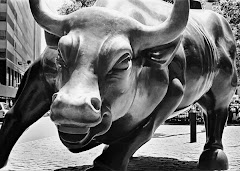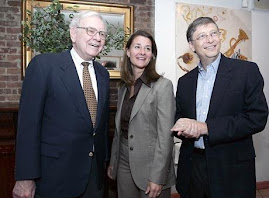Enough said, it's time to take action. We had passed the pit of the business cycle, that's my analysis/prediction/gut feel whatever you put it and I had said it during recent a dinners with my ex-colleagues in SBS and SAF. They all believe otherwise. So I told them there is no point arguing, the result will be out soon and we can bet on it.
I had lately shared with 2 friends about an idiot-proof investment strategy which now is the right time to deploy. This strategy does not requires any analytical skill nor time to do close monitoring. I'll come to this strategy in my next sharing.
I never comment or pretend that I am a fortune teller based on hindsight, if you know me. All my blog sharing can testify that. The following is an excerpt from AFP:
===================
WASHINGTON (AFP) - – The US economy moved closer to emerging from recession in the second quarter, according to revised data Wednesday showing a smaller-than-expected 0.7 percent pace of output decline.
The figure for gross domestic product (GDP) was better than last month's estimate of a 1.0 percent drop, and stronger than the average estimate of private economists calling for a 1.2 percent annualized rate of decline.
The report appeared to confirm that the world's biggest economy was emerging from its long recession and rebounding from a hefty 6.4 percent tumble in the first quarter of 2009.
The latest data "sets the stage for an improved economic outlook for the rest of 2009 and throughout 2010," said Aaron Smith at Moody's Economy.com.
"The downturn appears to have concluded this summer, and the economy is on track to grow for the first time in more than year in the third quarter. The initial phase of growth is being driven by rapid recoveries in housing and manufacturing, diminishing drags from equipment spending and nonresidential construction, and government support."
The figure for gross domestic product (GDP) was better than last month's estimate of a 1.0 percent drop, and stronger than the average estimate of private economists calling for a 1.2 percent annualized rate of decline.
The report appeared to confirm that the world's biggest economy was emerging from its long recession and rebounding from a hefty 6.4 percent tumble in the first quarter of 2009.
The latest data "sets the stage for an improved economic outlook for the rest of 2009 and throughout 2010," said Aaron Smith at Moody's Economy.com.
"The downturn appears to have concluded this summer, and the economy is on track to grow for the first time in more than year in the third quarter. The initial phase of growth is being driven by rapid recoveries in housing and manufacturing, diminishing drags from equipment spending and nonresidential construction, and government support."
















